Reviews
Nicholas Ray
USA, 1961
Credits
Review by Jenny Jediny
Posted on 05 September 2008
Source MGM DVD
Categories The Mystic: The Films of Nicholas Ray
What did he preach?
Peace, love, and the brotherhood of man.
Is that all?
That is all.
This exchange occurs almost halfway through Nicholas Ray’s biblical epic, King of Kings, between a Roman solider and his superiors; the solider has returned from observing Jesus of Nazareth deliver what is now considered the Sermon on the Mount. The subtle delivery, and reactions of the Roman lords to this solder is what’s notable about this moment, which encapsulates the slow build-up of faith Nicholas Ray relies on to make this very iconic drama a highly personal one. Belief and ambition, and ultimately human doubt and its consequences are important in establishing King of Kings as not your typical Jesus movie, but instead an occasionally flawed epic that manages to engage far more for its philosophy than its depiction of a well-known religious tale and its martyr.
The only MGM religious epic to flop at the box office - never mind so disliked by its narrator, Orson Welles, that he insisted his name be taken off the credits - King of Kings, had to have appealed to Ray for its very basic themes of exile and social persecution. However, the life, and eventual suffering of Jesus, while given its due here, is not the sole focus of the film. Ray’s take on the well-known story allows supporting characters, specifically Judas Iscariot and Barabbas, nearly the same amount of screen time, and develops their characters far more than Jesus.
While Judas is a recognizable name as Jesus’ betrayer, the character of Barabbas is nearly a footnote in the Bible, and a controversial figure at that. A revolutionist imprisoned for his beliefs and for inciting violence, Barabbas was sentenced to death by crucifixion, but pardoned to a loophole in Roman law that allowed Jesus to take his place on the cross. While the debate remains among scholars over Barabbas’ existence (and the interpretation of how his survival links to Jesus’ death), Ray uses Barabbas - significantly, more so than any other version of the story I’ve seen or read - as a parallel to Jesus’ life and teachings. While Barabbas calls for militant violence against Roman tyranny, Jesus asks for peace, both gaining a devoted following among the oppressed population of Jews. While Ray is careful to emphasize the gradual increase of faith in Jesus, he delineates the opposition, as Barabbas denounces Jesus and calls for violence against violence.
There certainly is violence in King of Kings, beginning with its opening scenes; men are run through with spears, stabbed, and left bloody and screeching by the Roman Empire—this all takes place far before Mary and Joseph’s humble trek to Bethlehem, another opportunity for Ray to display the cruelty of the Romans as they snatch newborn baby boys from their mothers’ arms after King Herod’s decree. The misery and suffering of the Jews depicted under the Romans makes a character like Barabbas sympathetic as he doubts Jesus’ pacifist approach, and blindly pushes forward with his sword.
If Barabbas is set up as politically opposite to Jesus, Judas - perhaps the most famous turncoat in history - is still tragically flawed here, but clearly the character with which Ray identifies. Sensitively portrayed (by Rip Torn!), Judas is more present here than any other of Jesus’ disciples; initially enamored with Jesus’ philosophy, and later led to doubt by Barabbas. Judas’ torment is reminiscent of the inner turmoil expressed in Martin Scorsese’s The Last Temptation of Christ, there by both Jesus and Judas. The grappling insecurity that overwhelms Judas is acutely modern, the qualms of a man uncertain of both his place in the world, and the changes occurring around him. Judas’ fatal decision in turning Jesus over to the Romans is portrayed not as calculated villainy, but as human error instantly turned to regret.
Human drama dominates King of Kings; although the use of CinemaScope is unmistakably enjoyable (the rich use of primary colors, specifically red, is lovely to look at, and Miklos Rozsa’s score stays just under overwhelmingly grandiose), Ray manages to imbue a genre that generally thrives on spectacle with intimacy. Avoiding any use of special effects to depict Jesus’ miracles throughout the film, Ray instead gives us only the Roman solders’ reports, and reactions to their retelling of these unimaginable moments. It is precisely this sort of simplicity that conveys not merely the power of these specific legends, but storytelling - and Ray’s ability at it - as a whole.
More The Mystic: The Films of Nicholas Ray
-
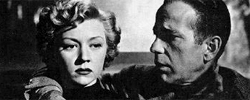
In A Lonely Place
1950 -

They Live By Night
1948 -
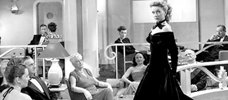
A Woman’s Secret
1949 -
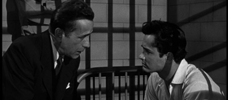
Knock on Any Door
1949 -

Born to Be Bad
1950 -
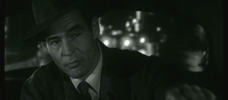
On Dangerous Ground
1952 -
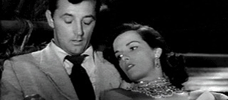
Macao
1952 -
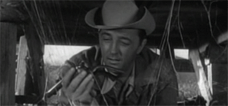
The Lusty Men
1952 -

Johnny Guitar
1954 -

High Green Wall
1954 -

Rebel Without a Cause
1955 -

Bigger Than Life
1956 -

Hot Blood
1956 -

The True Story of Jesse James
1957 -
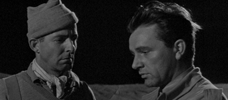
Bitter Victory
1957 -

Party Girl
1958 -

King of Kings
1961 -

55 Days at Peking
1963 -

The Janitor
1974 -

We Can’t Go Home Again
1973-1976 -

Lightning Over Water
1980
We don’t do comments anymore, but you may contact us here or find us on Twitter or Facebook.



